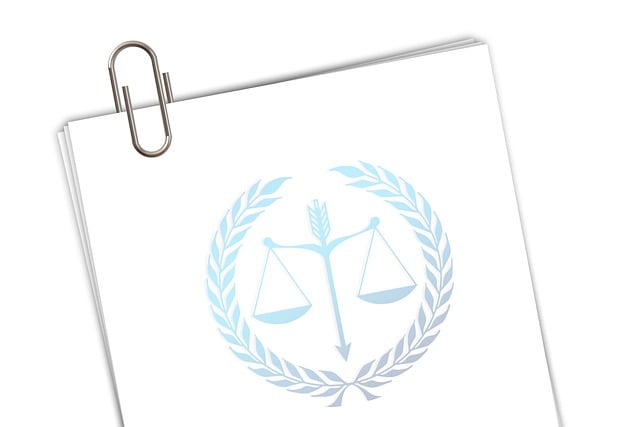Litigation Risk Management strategically addresses prosecutorial discretion, a key factor shaping legal outcomes in criminal and civil cases, including white-collar crime. Skilled risk managers analyze evidence, anticipate legal trends, and craft robust strategies to prepare clients for various scenarios, aiming for favorable resolutions through plea bargains, charge dismissals, or jury trials. Effective navigation of prosecutorial decisions ensures fairness, minimizes risks, and influences public perception of justice in high-stakes cases, highlighting the critical role of this discretion on case outcomes.
“Prosecutorial discretion, a pivotal factor in shaping legal outcomes, plays a nuanced role in both civil and criminal litigations. This article delves into the intricate relationship between prosecutorial decisions and case results, offering a comprehensive understanding of litigation risk management. We explore how prosecutors’ choices can significantly impact trials, with a focus on strategic mitigation of risks. Through insightful case studies, we analyze the real-world effects of prosecutorial discretion, providing valuable insights for legal professionals navigating complex legal landscapes.”
- Understanding Litigation Risk Management: A Comprehensive Overview
- The Role of Prosecutorial Discretion in Shaping Case Outcomes
- Impact of Prosecutorial Decisions on Civil and Criminal Litigations
- Strategies to Mitigate Risks Associated with Prosecutorial Discretion
- Case Studies: Analyzing the Effect of Prosecutorial Choices on Legal Proceedings
Understanding Litigation Risk Management: A Comprehensive Overview

Litigation Risk Management is a strategic approach that encompasses the entire legal landscape, from initial case assessment to final resolution. It involves a nuanced understanding of various factors influencing litigation outcomes, including the significant role played by prosecutorial discretion. This discretionary power, while critical in ensuring justice, can also present risks for both corporate and individual clients. By examining all stages of the investigative and enforcement process, effective risk management strategies are tailored to mitigate potential challenges.
The impact of prosecutorial decisions on case outcomes is profound, particularly as they shape the trajectory of criminal and civil litigation. Jury trials, a cornerstone of our legal system, further complicate these dynamics. Skilled risk managers navigate these complexities by analyzing evidence, anticipating legal developments, and developing robust strategies. They ensure that clients are well-prepared to face potential outcomes, thereby enhancing their chances of favorable resolutions throughout all stages of the legal process.
The Role of Prosecutorial Discretion in Shaping Case Outcomes

The role of prosecutorial discretion is a critical aspect often shaping the outcome of legal cases. Prosecutors hold significant power in deciding whether to pursue charges and how to proceed, which can significantly impact the fate of both defendants and plaintiffs. This discretion allows for flexibility in handling cases, enabling prosecutors to consider various factors beyond the mere facts presented.
An unprecedented track record of achieving extraordinary results through strategic prosecutorial decisions underscores its influence. Skilled prosecutors may choose to avoid indictment by negotiating plea bargains or dismissing charges, thereby allowing individuals to resolve matters without a trial. This approach not only spares defendants potential adverse consequences but also ensures legal resources are allocated efficiently. Such discretion can prove pivotal in cases where the evidence is circumstantial or when there’s a possibility of wrongful accusation, ultimately guiding the justice system towards more equitable outcomes.
Impact of Prosecutorial Decisions on Civil and Criminal Litigations

The decisions made by prosecutors play a pivotal role in shaping the trajectory of both civil and criminal litigations. Prosecutorial discretion, the power to choose which cases to pursue and how to charge individuals, significantly influences case outcomes. This is particularly evident in high-stakes cases involving complex issues such as white collar and economic crimes, where strategic decisions can lead to substantial settlements or acquittals. The ability of prosecutors to navigate these intricate matters can make all the difference between a successful prosecution and an unsuccessful one.
The implications extend beyond the direct case outcomes; they also affect public perception of justice and the overall legal landscape. In scenarios involving jury trials, for instance, the way prosecutors present evidence and argue cases can sway jurors’ decisions. Therefore, the exercise of prosecutorial discretion is not just a legal tactic but a crucial aspect that shapes the fairness and efficiency of the criminal justice system as a whole.
Strategies to Mitigate Risks Associated with Prosecutorial Discretion

In managing litigation risks, one critical area to focus on is mitigating the uncertainties associated with prosecutorial discretion, which significantly impacts case outcomes. This involves a strategic approach to ensure fairness and reduce the potential for arbitrary decisions that could sway the outcome in favor of either party. One effective strategy is thorough pre-trial preparation, where robust legal arguments and comprehensive evidence are presented to strengthen the defense or prosecution’s position. For his clients, this preparation aims to demonstrate the merits of the case, thereby influencing prosecutorial judgment towards a just decision.
Additionally, maintaining open lines of communication with prosecutors can foster an understanding of their considerations. Lawyers should advocate for their clients’ interests while also providing transparent information relevant to the case. Achieving extraordinary results in litigation often hinges on navigating these subtle dynamics, ensuring that procedural steps are followed diligently and all legal avenues explored. This approach not only minimizes risks but also contributes to a more robust and fair judicial process.
Case Studies: Analyzing the Effect of Prosecutorial Choices on Legal Proceedings

The impact of prosecutorial choices on legal proceedings is a critical aspect of litigation risk management, especially in high-stakes cases involving white-collar and economic crimes. Numerous case studies have demonstrated how strategic decisions made by prosecutors can significantly alter the trajectory of a case. For instance, in complex white-collar defense scenarios, prosecutors’ discretion in charging decisions and plea negotiations can either facilitate a swift resolution or prolong litigation, impacting the ultimate outcome for all parties involved.
Analyzing these case studies offers valuable insights into the delicate balance between public interest and individual rights. Understanding how prosecutorial discretion influences case outcomes enables legal professionals to navigate complex cases more effectively. This knowledge is particularly relevant in managing risks associated with white-collar and economic crimes, where strategic planning and a deep understanding of prosecutorial tendencies can prove instrumental in achieving favorable results.
Prosecutorial discretion plays a pivotal role in shaping case outcomes, with its impact reverberating across both civil and criminal litigations. By understanding the far-reaching consequences of prosecutorial decisions, legal professionals can employ strategic risk mitigation techniques. These strategies, as illustrated through case studies, empower lawyers to navigate the complexities of prosecutorial discretion, ultimately enhancing their ability to advocate for their clients’ best interests while mitigating potential litigation risks. In today’s legal landscape, recognizing and managing the impact of prosecutorial discretion is essential for successful case management.






